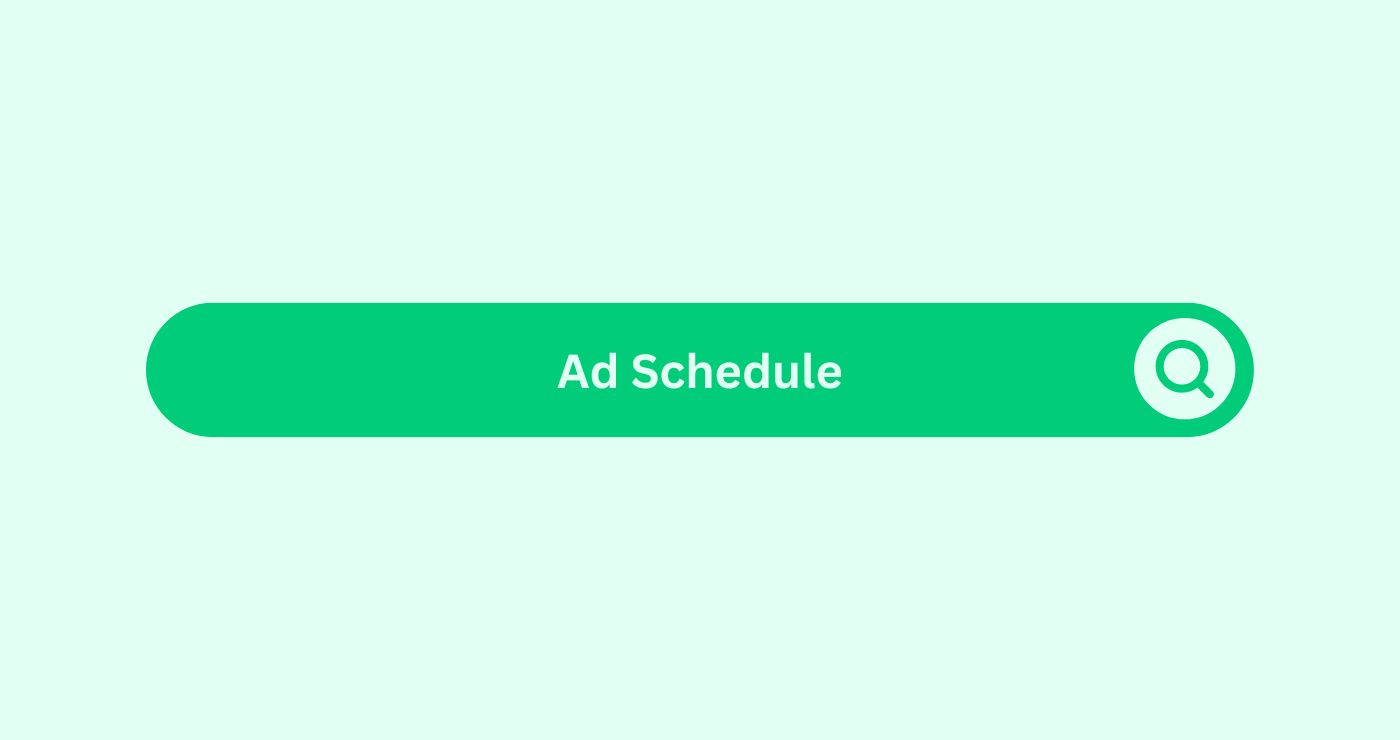Definition
Ad Schedule in SEO targets optimal display times, enhancing ad performance and ROI by reaching active audiences strategically. Ad Schedule (also known as dayparting) is a feature in digital advertising platforms like Google Ads that allows advertisers to choose specific days and times when their ads will appear. It helps maximize ROI by targeting audiences when they’re most likely to convert.
How you can use
For instance, consider an online tutoring service targeting students preparing for standardised tests. By scheduling ads strategically, the service ensures they appear when students are most likely seeking help, boosting engagementDefinition Engagement in content marketing refers to the deg... and conversions.
Key Takeaways
- Advertisers use Ad Schedule to strategically control ad display times, maximising effectiveness.
- By analysing historical performance data and considering factors such as customer behavior and market trends, advertisers can identify optimal times and days for ad display.
- Implementing ad scheduling can help improve ad relevanceDefinition In SEO, relevance refers to the degree to which a..., increase click-through rates (CTR), and reduce ad spend wastage by targeting users at the most opportune moments.
- Ad scheduling should be regularly monitored and adjusted based on performance metricsWhat are Metrics in the context of SEO? Metrics in SEO refer... and changes in customer behavior or market dynamics to maintain campaignDefinition An SEO campaign involves focused, Organised effor... effectiveness.
- Utilising advanced features such as bid adjustments for specific time slots or days can further enhance ad scheduling strategies and drive better results.
FAQs
How do I set up ad scheduling in advertising platforms like Google Ads?
Ad scheduling can be set up in advertising platforms by navigating to the campaign settings and selecting the "Ad Schedule" or "Dayparting" option. From there, advertisers can specify the days and times they want their ads to be displayed.
What factors should I consider when creating an ad schedule?
When creating an ad schedule, consider factors such as customer behavior patterns, peak hours of activity, geographical considerations, and the nature of your products or services. Analyzing historical performance data can provide valuable insights into optimal ad scheduling strategies.
Can ad scheduling help improve return on investment (ROI) for advertising campaigns?
Yes, ad scheduling can help improve ROI by ensuring that ads are displayed when the target audienceDefinition The term "Audience" refers to the group of indivi... is most likely to be receptive, thereby increasing the likelihood of engagementDefinition Engagement in content marketing refers to the deg... and conversions. By optimizing ad deliveryDefinition Google Ads delivers ads to potential customers. G..., advertisers can maximize the impact of their advertising budgetDefinition SEO budget is the money allocated for marketing a....
What if my target audience spans different time zones or regions?
If your target audienceDefinition The term "Audience" refers to the group of indivi... spans multiple time zones or regions, consider creating separate ad schedules for each region or adjusting bid adjustments to accountDefinition In SEO, an Account refers to systematically manag... for differences in customer behavior. This ensures that ads are displayed at the most relevant times for each audienceDefinition The term "Audience" refers to the group of indivi... segment.
How often should I review and adjust my ad schedule?
Ad schedules should be reviewed regularly, ideally on a monthly or quarterly basis, to assess performance metricsWhat are Metrics in the context of SEO? Metrics in SEO refer... and identify opportunities for optimization. Adjustments may be necessary based on changes in customer behavior, seasonality, or market dynamics.
Can I exclude specific days or times from my ad schedule?
Yes, advertising platforms typically allow advertisers to exclude specific days of the week or times of the day from their ad schedule. This can be useful for avoiding non-relevant or low-performing time slots and focusing budgetDefinition SEO budget is the money allocated for marketing a... on more lucrative periods.
Does ad scheduling impact ad rank or quality score?
Ad scheduling itself does not directly impact ad rankDefinition Ad rank calculates the position of an advertiseme... or quality scoreDefinition Quality Score is a metric that SEO uses to evalua.... However, by targeting ads to specific time slots when user engagementDefinition Engagement in content marketing refers to the deg... is higher, advertisers may indirectly influence ad performance metricsWhat are Metrics in the context of SEO? Metrics in SEO refer... that affect ad rankDefinition Ad rank calculates the position of an advertiseme... and quality scoreDefinition Quality Score is a metric that SEO uses to evalua....
What if I notice a drop in performance during certain time slots?
If you notice a drop in performance during certain time slots, consider adjusting bid adjustments or pausing ads during those periods. Additionally, analyze factors such as ad creative, landing page experienceDefinition Page Experience refers to the overall user experi..., and competitor activity to identify potential optimization opportunities.
Can ad scheduling be used for both search and display advertising campaigns?
Yes, ad scheduling can be applied to both search and display advertising campaigns to control when and where ads are displayed to target audiences. However, the implementation may vary slightly depending on the advertising platform and campaignDefinition An SEO campaign involves focused, Organised effor... objectives.
Are there any limitations or restrictions to ad scheduling?
While ad scheduling offers flexibility and control over ad deliveryDefinition Google Ads delivers ads to potential customers. G..., there may be limitations or restrictions depending on the advertising platform and campaignDefinition An SEO campaign involves focused, Organised effor... settings. Advertisers should familiarize themselves with platform-specific guidelines and best practices for effective ad scheduling.




